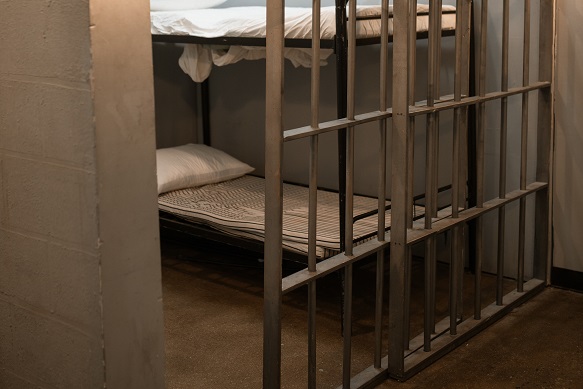It is helpful to understand that there are differences in the state and federal prison systems and if you are charged with a crime it is of paramount importance to know whether you have been charged with a federal or state crime.
There is a distinction in New Jersey, as with any state, in the criminal justice system between state jurisdiction and laws and federal jurisdiction and laws. Each of these branches of the justice system have their own prisons. It is important to understand how these different types of systems work, the sort of crimes which are managed and punished by each branch, and how this leads to differences in the types of jails in which they sent individuals to upon incarceration. The question an individual who has been charged with a crime might ask themselves, will I go to federal or state prison if convicted? The answer will be dependent on the type of crime they have committed.
Jurisdiction and Types of Crimes
The first thing to consider when looking at the difference between federal and state prison is the type of crime that has been committed. Federal laws are different from state laws, which means that they have different jurisdictions for the types of crimes for which they will prosecute an individual. For example, crimes such as tax evasion or drug trafficking typically fall under federal jurisdiction where crimes like assault, DUI, or even homicide are typically state level crimes.
A federal prison in New Jersey, such as FCI Fort Dix, will house inmates who have been convicted of federal crimes. When a crime has violated a federal law or has involved activities that cross state lines or have national implications it will be tried as a federal crime and if the individual was convicted you will be sent to a federal prison. Federal cases are prosecuted by U.S. Attorneys and heard in federal courts, and require a criminal attorney who handles federal cases to be their representative.
State prisons, on the other hand, incarcerate individuals convicted of state crimes. These offenses violate New Jersey state laws and are typically more localized. Examples include robbery, assault, burglary, state-level drug offenses, and other crimes committed within the state’s boundaries. These cases are prosecuted by county or state prosecutors and heard in state courts. Most criminal defense attorneys handle these types of cases, but it is important that you hire a criminal attorney who is specialized in the type of crime that you have been charged with. For example, if you are charged with aggravated manslaughter, then you should hire an attorney near you who has experience with manslaughter and homicide cases.
Difference of Administration and Management
Federal prisons are managed by The Federal Bureau of Prisons (BOP), a division of the U.S. Department of Justice. The BOP is responsible for the administration, management, and regulation of federal correctional facilities across the country, including the two federal correctional institutions located in New Jersey. The federal legal system has standardized policies and procedures in place, which apply uniformly across all federal prisons across the entire country. In contrast, the New Jersey Department of Corrections (NJDOC) manages the 9 correctional facilities located within the state. The NJDOC is responsible for the operation, supervision, of these jails as well as a number of Residential Community Release Programs. While there are some standardized procedures in how these jails operate, each jail may have different policies tailored to address their specific needs and inmate population.
Security Levels and Types of Facilities
The federal prison system is more complex than a state prison system and breaks into more levels than the state prison system. Federal prisons are categorized by their different security levels to house various types of offenders. These include minimum-security, also known as federal prison camps, low-security, medium-security, and high-security or penitentiaries. At one time, there were also a handful of extremely secure federal prisons meant to house those there were considered a great risk to public safety, referred to as a Supermax (super-maximum security prison) or administrative maximum (ADX) prison. Alcatraz was an example of one of these. Most have been downgraded, with the only official remaining one being located in Florence, CO. The different levels of security allow law enforcement to segregate inmates based on their risk profiles and rehabilitation needs.
State prisons work in a similar manner, in that they also base their correctional facilities on security level. New Jersey state prisons have minimum, medium, and maximum-security facilities housing around 20,000 inmates. The variety and specialization of these prisons is less extensive than that of the federal system, but still provides a secure facility for which an inmate can serve their sentence.
Inmate Sentences

Inmates that are incarcerated in a federal prison will often face longer sentences, because federal crimes typically have harsher sentencing, which can be more severe or complex. Federal sentencing guidelines are typically stricter, and inmates are not eligible for parole, as the federal parole system was abolished for any inmate that is convicted after 1987. Inmates can earn good behavior credits that can help to reduce their time served at a rate of 54 days for every year they are sentenced.
State prison on the other hand have widely varying sentences that are based on the person’s offense and NJ’s sentencing laws. New Jersey guidelines do include parole eligibility and other rehabilitation programs, which are designed to help reduce recidivism (repeat offending). There is often a mixture within the inmate population in state prisons serving short-term and long-term sentences.
Understanding Different Prison Systems
It is helpful to understand that there are differences in the state and federal prison systems and if you are charged with a crime it is of paramount importance to know whether you have been charged with a federal or state crime. Many criminal laws focus on local cases and stick to state-related crimes due to the complexity of federal cases. If you are charged with a federal crime, it is of the upmost importance to retain the services of a criminal lawyer who has experience with the federal court system and who will be able to fight on your behalf.


Join the conversation!